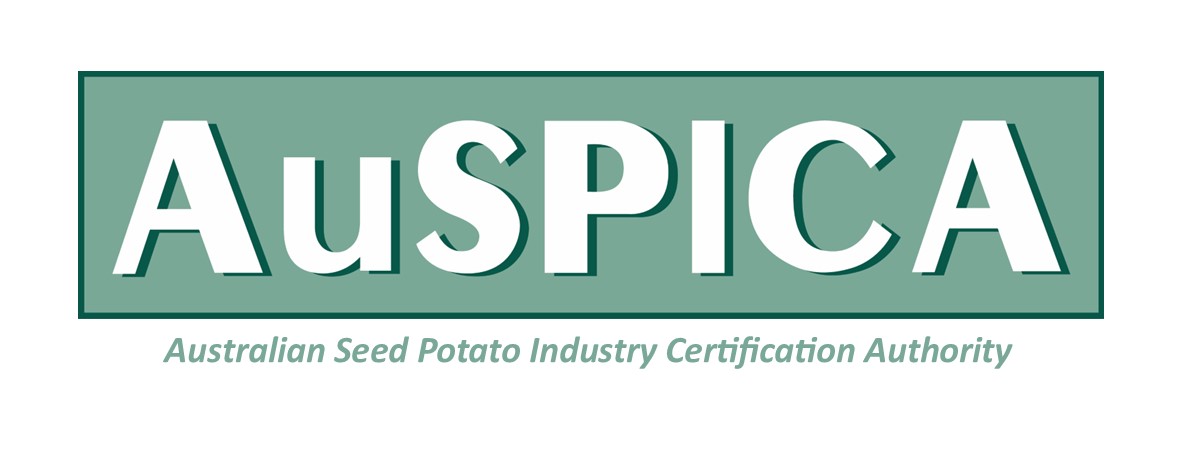Notification of a new blackleg disease issue that has potential to affect potatoes
Worldwide blackleg disease of potatoes can be caused by several species of bacteria. Traditionally, Australia has only had one type causing disease. Two new bacteria have been found in a few seed crops this season that causes the disease blackleg. These were detected during routine crop inspections.
Dickeya dianthicola was previously detected in potatoes in Western Australia a few years ago. The recent detection this season now confirms that D. dianthicola is present in Victoria. In addition, two new bacteria Pectobacterium parmentieri, and Pectobacterium carotovorum subsp. brasiliense have been found.
AuSPICA is working to identify the disease and is tracing the affected seed lines.
What does it look like? The new pathogens causing blackleg prefer warmer temperatures than the old-fashioned blackleg.
Aboveground symptoms include uneven emergence and wilting plants and affected plants wilt very quickly. A symptom of the “new blackleg” is blackness in the stem that typically rises from the bottom of the stem. The blackleg does not have a potent smell and is not slimy or wet to the touch.
What has been seen? Not all lines, or all crops are affected. Affected seed lines vary from a few plants to levels of 5% to 35%.
Blackleg has the potential to affect all varieties, there is no true resistance for blackleg.
What does a detection mean? The AuSPICA Board have reviewed the situation and have amended the conditions of the Scheme to ensure that this does not further multiply within the Scheme.
In so doing, any detection of blackleg that is confirmed as D. dianthicola, P. carotovorum subsp. brasiliense or P. parmentieri by laboratory testing will be downgraded to Green label. This will be necessary to flush the Scheme in order to prevent build up and widespread losses owing to blackleg.
Educational material will be developed so as both seed growers and buyers can make informed decisions. Attached is a fact sheet prepared by visiting scientist Dr Steven Johnson, University of Maine.
We urge growers to maintain strict on-farm biosecurity measures to help restrict the spread and impact of these bacteria.
To obtain more information from AuSPICA: Contact Nellie Malseed, Compliance Officer (03) 5962 0000 who will direct all enquiries to appropriate personnel nellie.malseed@auspica.org.au

